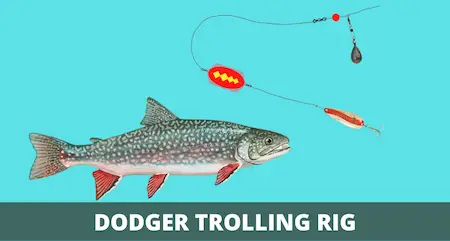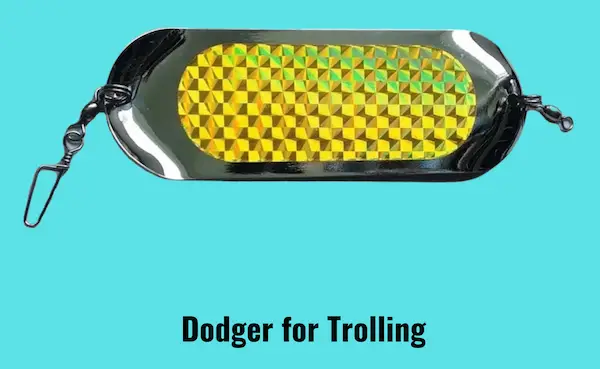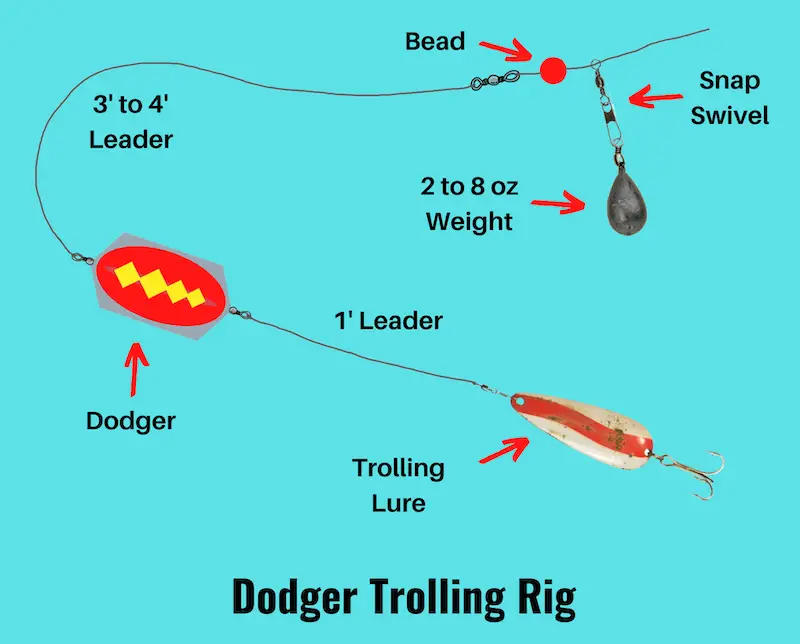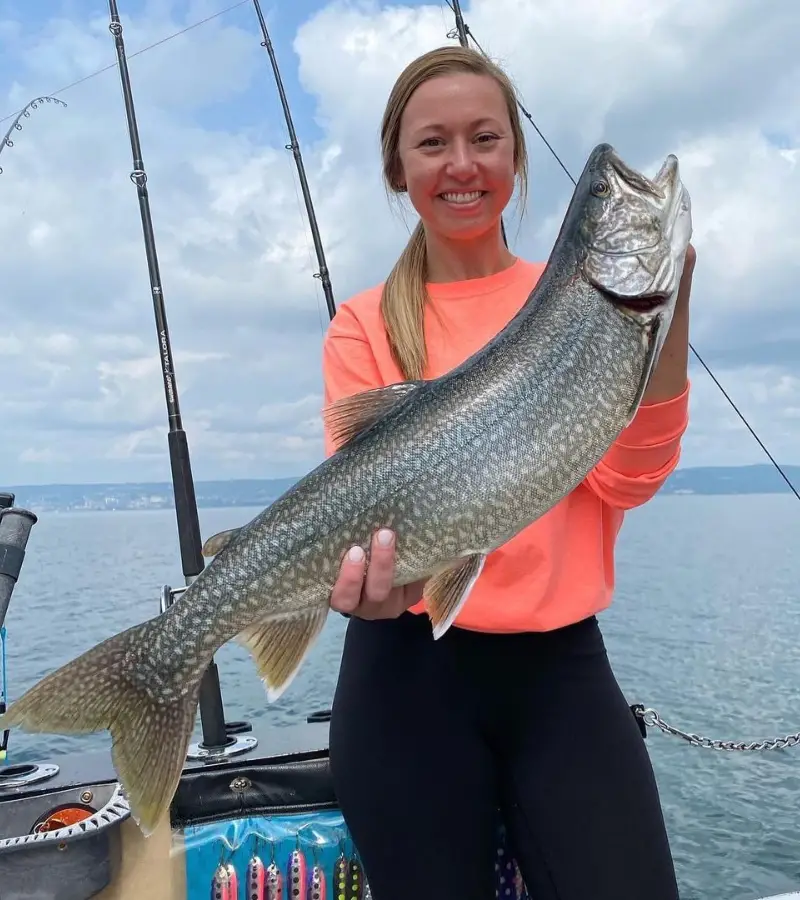Dodger Trolling Rig (Setup & How-to Guide with Pictures)
PUBLISHED 26 JULY 2023
by Robert Ceran
Are you planning to use a dodger rig for trolling, but aren’t sure how to set it up, or how to use it to put more fish in the boat?
While the dodger trolling setup is a tried and tested rig for lake trout and salmon, and has been catching fish for many years, it can be challenging to set up and fish correctly.
In this article I’ll show you how to set up the dodger trolling rig, and will also discuss what lures or bait to use with it, and how to troll it for the best results.

What is a dodger rig for trolling (and what is it good for)?
A dodger rig is a trolling setup that uses a rectangular metal attractor for trout, lake trout and kokanee. The dodger consists of a flat piece of metal that’s about 6 to 9 inches long, with swivels attached at both ends (see image below).

A dodger is designed to produce a kicking or wobbling motion when it is trolled behind a boat, and this motion generates vibrations in the water similar to those of a large trout or salmon when it attacks a school of baitfish.
The vibrations and flashes produced by a dodger setup are very effective for attracting hungry lake trout or salmon within a radius of up to 30 feet.
These fish want to get in on the feeding activity that the dodger simulates, and hence come closer to investigate, which helps you to cover more ground when trolling for lake trout in deep water.
Components needed for a dodger trolling setup
You’ll need the following tackle components to set up a dodger trolling rig:
- Dodger
- Barrel swivel
- Snap swivel
- 2 to 8 oz sinker
- Plastic bead
- 50 to 70 lb test braided main line
- 20 to 30 lb test monofilament leader 1
- 10 to 15 lb test fluorocarbon leader 2
- Trolling lure of your choice
Note that this setup is unusual in that you need to tie two different leaders, as the dodger needs enough distance on either side of it to produce the right wobbling or kicking action in the water.
How to set up a dodger trolling rig

In order for a dodger to produce the right action in the water, it needs about 2 to 3 feet of leader line above it, and about 1 foot of leader line below it. This is why it’s necessary to tie two separate leaders when setting up a dodger trolling rig.
The first step is to thread a snap swivel onto your main line, followed by a plastic bead. Next, tie the main line to a barrel swivel, and attach a 2 to 8 oz weight to the snap swivel.
Then tie a 2 to 3 foot monofilament leader to the other eye of the barrel swivel, and attach the end of this leader to the dodger.
Next, tie a second leader to the other end of the dodger, and measure out about 1 foot before attaching the end of the leader to a trolling lure, or to a snap swivel (which allows you to change trolling lures quickly without having to re-tie the leader).
What bait should you use with a dodger trolling rig?
Similar to a flasher trolling setup, a dodger can be used with pretty much any trolling lure, but is most often used with either a trolling spoon or a crankbait. When it comes to crankbaits, kwikfish are among the top producing lures for lake trout.

Image source: instagram@happyhookercharter
However, you can also opt for rigging a dead bait fish behind a dodger, by using a tandem hook setup (such as a salmon meat rig). You can use herring or smelt for this type of dead baitfish rig.
How to fish a dodger trolling rig
If you’re targeting lake trout in relatively shallow water of up to about 50 feet, you can troll a dodger fishing setup without a downrigger, and you can adjust the depth of your presentation by varying the size of the sinker attached to the snap swivel of this rig.
If you want to go even deeper with your dodger rig, but without going to the trouble of setting up downriggers, another option is to use lead core line.
Trolling a dodger setup with a downrigger
During the heat of summer, lake trout like to retreat into deep waters around 80 to 100 feet, or even deeper, and the only way to reach them at this time is with a downrigger.
A downrigger consists of a large spool with a heavy line and a big lead ball attached to its end.
When lowered into the water, the lead ball sinks down straight into the water, and you just have to attach your fishing line to a release clip of the downrigger, and that allows you to get it down to the desired depth.
